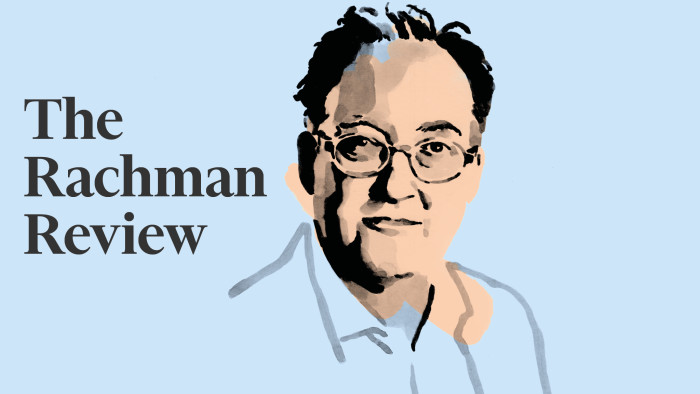Events in Hong Kong reveal the thin veneer of civilisation
Roula Khalaf, Editor of the FT, selects her favourite stories in this weekly newsletter.
Lord of the Flies, William Golding’s classic novel of societal breakdown, is part of the standard high school curriculum in Hong Kong. But today everyone in this most genteel of cities is witnessing a real-life lesson in the fragility of what we call civilisation, as the territory descends into tribalism and scenes of obscene violence.
On Friday, the protest movement that began in early June saw its first fatality when a 22-year-old student protester died after falling from a car park near a police clearance operation.
His death prompted an orgy of violence over the weekend and into Monday, when a policeman was filmed shooting a protester with live ammunition and the city was again brought to a standstill by mass violent protests. In one horrific incident, a man who had earlier been involved in scuffles with demonstrators was doused in flammable liquid and set alight.
One of the most troubling aspects of the current unrest is the tendency of large groups of protesters to turn on people they suspect are undercover police or spies from mainland China and beat them to a pulp. This has happened on scores of occasions, sometimes after the victims instigated a quarrel but, in a few instances, when the victim has apparently done little more than speak Mandarin within earshot of protesters.
This despicable behaviour seriously undermines the demonstrators’ cause. But it has been under-covered in the international media, and only sparingly acknowledged by protesters, because it does not fit neatly into the narrative of people fighting for the noble cause of democracy.
Perhaps most surprising has been the public’s willingness to accept and excuse the increasing violence. The proportion of Hong Kong people who strongly agree the protests should remain peaceful has dropped from 65 per cent in June to 46 per cent by mid-October. In answer to a separate question, more than 59 per cent of Hong Kongers now say they “understand” the need for more radical action if peaceful protests fail.
The same deterioration in norms is glaringly evident in the actions of the Hong Kong Police Force, which was once considered the finest in Asia, if not the world, and whose slogan is to “serve with pride and care”. Today, they openly refer to Hong Kong citizens as “cockroaches” and “trash”. Protesters respond by calling them “dogs”. This is the language of genocide.
Examples of police double standards when it comes to dealing with pro- and anti-government protesters are too numerous to count. Members of criminal triad groups who attack anti-government protesters have been dealt with incredibly leniently, while anyone who looks like they might be a demonstrator is at risk of being beaten unconscious. As a result, the latest opinion polls show 52 per cent of Hong Kong people have zero trust in the police, up from just 6.5 per cent before the protests began.
Weekly podcast

Listen to the new weekly podcast from Gideon Rachman, the FT’s chief foreign affairs columnist, and listen in on his conversations with the decision-makers and thinkers from all over the globe who are shaping world affairs
At the start of the troubles five months ago, the professionalism and restraint of the police were striking. There are still many decent officers but increasingly brutal tactics, contempt for the general public and direct targeting of journalists are now the norm. Several officers were caught on camera over the weekend loudly celebrating and laughing at the death of the young protester. The public impression that police are protecting pro-government thugs, and the widespread use of undercover officers disguised as demonstrators, have both fuelled the rise in mob justice.
This is not to excuse the horrific vigilante attacks, but context is critical to understanding how easily a spiral of violence can form. No police officer has faced charges for any of their many examples of brutality. While thousands of protesters have been arrested, very few of the people carrying out vigilante attacks on either side have been caught or punished.
Demonstrators and police officers are experiencing a kind of epiphany when they realise there are no repercussions for smashing the thin veneer of civility. As a consequence, the range of acceptable behaviour has widened dramatically and the most brazen and outrageous actions are becoming normalised. This is fed by social media echo chambers. Pro-Beijing government supporters see and share only the vandalism and beatings carried out by demonstrators, while protest sympathisers focus only on police or triad violence.
This willingness to stomach previously unthinkable acts is astonishing in a place ranked seventh by the UN in terms of human development, with some of the healthiest, longest-living, best educated, richest and most worldly citizens on earth.
If this breakdown can happen in Hong Kong it can happen anywhere. And while a civil society can be torn apart virtually overnight, it almost always takes decades to build it back up.
Comments